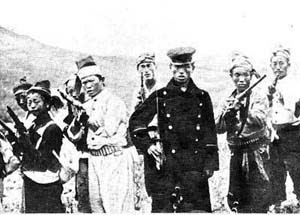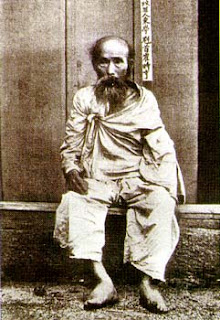Native religions arose that were mixtures of Christianity, Buddhism, native and nationalisic beliefs, such as Chondogyo. These religions soon produced peasant armies. Peasant armies arose in the countryside to stave off this foreign expansionism as well as to protest the heavy taxes being levied on it by the nobility. That sounds like a familiar tune, a veritable recipe for revolt.
And revolt they did. A similar phenomena was taking place in China in the Boxer Rebellion of 1900. However, that rebellion had implicit government support. The Peasant Armies were systematically anti-government, or at least anti-repressive government. However, they in keeping with Korean tradition were very nationalistic, very concerned about the maintenance of their Korean heritage. And decidedly xenophobic (in this case, for good reason).
All very fascinating. Once again, I link to wikipedia. Some of the writing is dubious and generally nonsensical, but overall it gives a wonderful overview that peasants faced in Korea.
We point to the 20th century as being a period of great upheaval, but the 19th century definitely laid the foundation for that change.
To think of the number of ideologies that arose out of that century is mind-boggling. Think of how the following have effected the twentieth century (and even the 21st).
1. Democracy (existed before, but spread in the 19th century, reaching Asia at precisely this time).
2. Communism
3. Evolution
4. Psychology
The list goes on and on, but try and imagine how these ideas alone threw the ancient world on its head.

